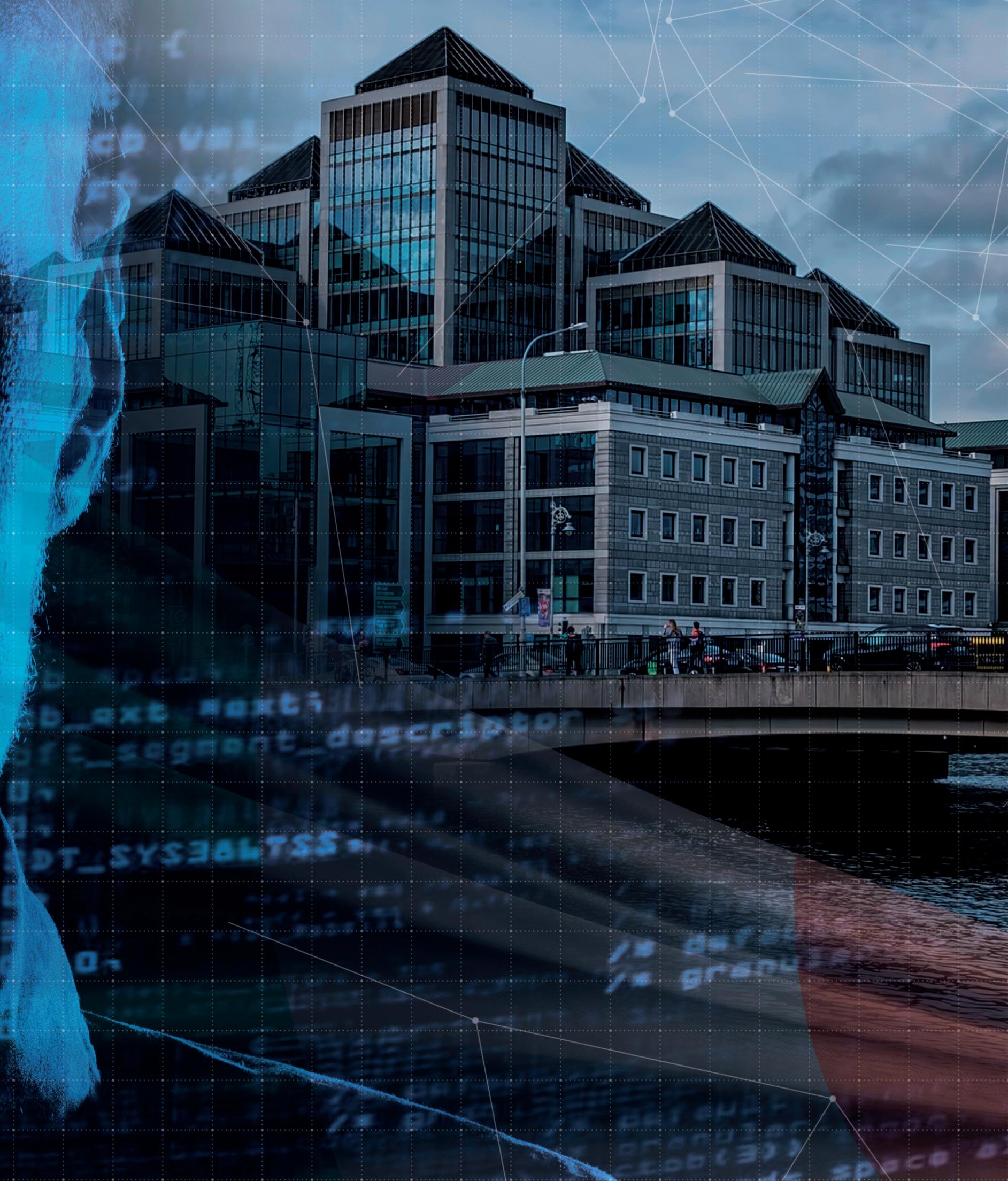EUROFOCUS
cybersecurityeurope
IRELAND As one of the EU’s most digitally-developed states, Ireland’s economic status depends on a punch-above-weight IT security strategy.
THE REPUBLIC OF IRELAND RANKS ITSELF AMONG THE FOREMOST EUROPEAN UNION (EU) MEMBER STATES IN TERMS OF UPTAKE AND USE of digital technologies. There’s no doubt that Ireland has significantly gained economically from its EU status: the development of the pan-European data exchange system, its geopolitical location, and open economy have also contributed to the country’s position as host to a major share of Euro-centric data and economic activity. Its success in this respect has, unsurprisingly, made Ireland a prime target for cyber threats bent on hacking into its enterprise information systems, financial deposits, and critical national infrastructure. Despite increased level of security awareness over recent years, cyber crime incidents in Ireland are on the increase, with 61% of Irish organisations reported to have suffered cyber crime in the last three years, up from 44% in 2016, and its attack rate is now double the average of global companies (31%), according to PwC’s Irish Electronic Crime Survey 2018, with an estimated loss on average of €3.1m. The country is also subject to cyber attack by nation-state threat actors. The Irish Independent reported that the North Korean hacker gang called Lazarus carries out ‘almost daily’ cyber attacks on Irish banks and utilities, according to Symantec. According to a report on Independent.ie, investigators believe the cyber raid carried out against Meath County Council – the regional LEAD
CYBER IRELAND CLUSTER MUSTERS... Launched in May 2019, the Cyber Ireland initiative is hosted by the Cork Institute of Technology (CIT). This national cluster aims to represent the needs of the sector in Ireland and it includes stakeholders from business, industry,
24 54
academia and government. It stated aims are to encourage co-operation, raise awareness of education and career opportunities, drive innovation








